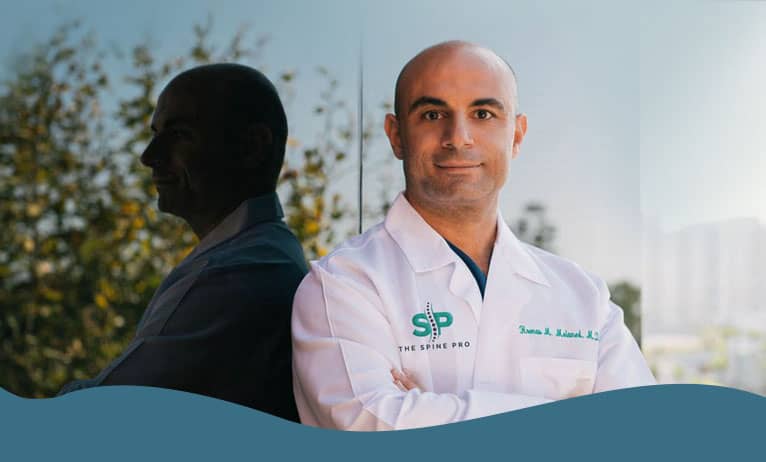Yes, You Can Have Spine Surgery Without Opiates
History of Opiate Misuse
For decades, misuse of both prescription and non-prescription opioids has been rampant across the United States. In 2017, the U.S. Department of Health and Human Services declared a public health emergency on the opioid crisis, as more than 10 million people were misusing prescription opioids every year.
As one of the most difficult areas to achieve a perfect clinical outcome after surgery, spine surgeries have a higher percentage of post-operative patients who exhibit symptoms that require pain medication. Ideally, surgery aims to mitigate symptoms that caused the patient to have surgery, and pain medication is prescribed during the postoperative period for about one month. Unfortunately, some patients rely on pain medication long after this one month recovery period.
To combat this reliance on addictive opioids, physicians like Dr. Hooman Melamed at The Spine Pro, have found a myriad of other pain-relieving solutions to help ease post-operative pain.
Alternatives to Opioids
Nerve-blocking anesthesia: Anesthetics such as lidocaine and bupivacaine can be injected directly into the surgery site to numb the area and serve as pain relief from anywhere to a few hours to a few days after the procedure. There are also long-action numbing options that release the medication over a prolonged period of time, which can eliminate the need for opioids later in the healing process.
Non-opioid medications: Non-opioid pain medications include products such as Advil, Tylenol, Aleve, and Ibuprofen. These pain relievers contain active ingredients such as aspirin, acetaminophen, or a non-steroidal anti-inflammatory, and are often available over the counter. These medications are considered safer than opioids, though heavier doses may require a doctor’s prescription.
TENS machines: A transcutaneous electrical nerve stimulation, known as a TENS unit is a battery operated device that delivers small electrical impulses to the body through electrodes. These electrodes are attached to the person’s skin through four adhesive pads, which transmit electrical impulses that flood the nervous system, reducing the body’s ability to send pain signals to the spinal cord and brain. At the same time, the impulses stimulate the body to produce endorphins, which are natural chemicals that boost happiness and alleviate pain.
Contact The Spine Pro
At The Spine Pro, Dr. Hooman Melamed is an expert on spinal surgery and he will provide you with personalized care and attention for your individual needs. If you are interested in alternative solutions to pain relief, make an appointment at the Spine Pro today or call (310) 928-2016






